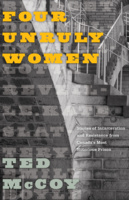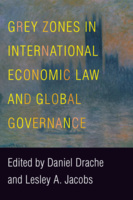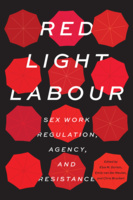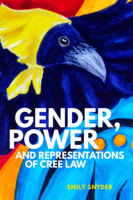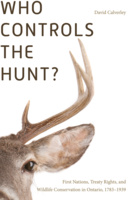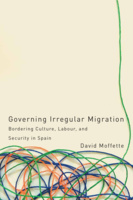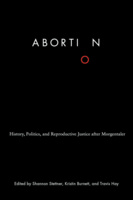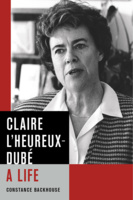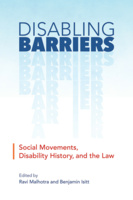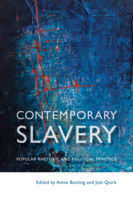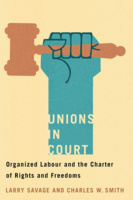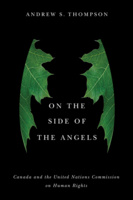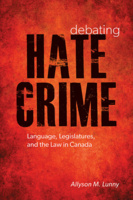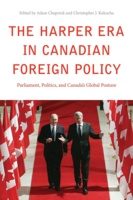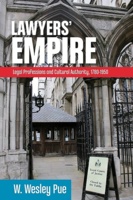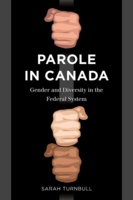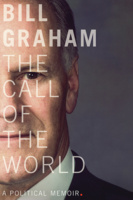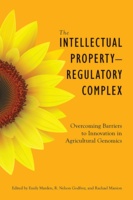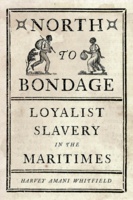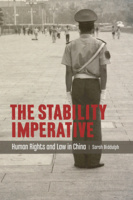Seeking the Court’s Advice
The Politics of the Canadian Reference Power
The first comprehensive analysis of the Canadian reference power, Seeking the Court’s Advice examines how policy makers use the courts strategically to achieve political ends.
Four Unruly Women
Stories of Incarceration and Resistance from Canada’s Most Notorious Prison
Filled with stories of pain, regret, and resistance, this chilling account of how four women survived their time at Kingston Penitentiary stands as an indictment of the idea that prisons and punishment are society’s answer to crime.
Resisting Rights
Canada and the International Bill of Rights, 1947–76
Resisting Rights challenges the myths that Canada has always been at the forefront in the development of international human rights law and led the cause at the United Nations.
Condo Conquest
Urban Governance, Law, and Condoization in New York City and Toronto
This eye-opening study shows how the condo, developed to meet the needs of a community of owners in cities in the 1960s, has been conquered by commercial interests.
Truth and Conviction
Donald Marshall Jr. and the Mi’kmaw Quest for Justice
A passionate account of how one man’s fight against racism and injustice transformed the criminal justice system and galvanized the Mi’kmaw Nation’s struggle for self-determination, forever changing the landscape of Indigenous rights in Canada and around the world.
Grey Zones in International Economic Law and Global Governance
Grey Zones in International Economic Law and Global Governance examines contested zones of global governance to understand state policy and market behaviour in the current era.
Red Light Labour
Sex Work Regulation, Agency, and Resistance
Red Light Labour, the first book to examine sex work policy and advocacy since Canada v. Bedford, showcases the perspectives of sex workers and activists and deepens our understanding of sex work as labour.
Enforcing Exclusion
Precarious Migrants and the Law in Canada
Enforcing Exclusion explores the multiple ways migration status functions to exclude temporary and precarious migrants from the law’s benefits and protections.
Class Actions in Canada
The Promise and Reality of Access to Justice
The first major empirical and critical study of class actions in Canada, this book provides a detailed account of how they operate and whether they are achieving their goals.
A Family Matter
Citizenship, Conjugal Relationships, and Canadian Immigration Policy
A Family Matter investigates the implications for immigrants and refugees of the Canadian government’s definition of what constitutes “family.”
Aboriginal Peoples and the Law
A Critical Introduction
This introduction to contemporary Aboriginal law lays the groundwork for any assessment of Canada’s claim to be a just society for Indigenous peoples.
Gender, Power, and Representations of Cree Law
This powerful book investigates the relationship between the oversimplification of gender in representations of Cree law and its effect on perceptions of Indigenous women as legal agents and citizens.
By Law or In Justice
The Indian Specific Claims Commission and the Struggle for Indigenous Justice
This insider’s account of the work of the Indian Specific Claims Commission takes an unflinching look at the development and implementation of Indigenous claims policy from 1991 to 2009.
Who Controls the Hunt?
First Nations, Treaty Rights, and Wildlife Conservation in Ontario, 1783-1939
Tracing the connections between colonialism and the early conservation movement in Ontario, Who Controls the Hunt? examines the contentious issue of treaty hunting rights and the impact of conservation laws on First Nations.
Otter’s Journey through Indigenous Language and Law
Told in contemporary Anishinaabe storytelling style, Otter’s Journey takes us across the globe to explore how the work in Indigenous language revitalization can inform the emerging field of Indigenous legal revitalization.
Health Care and the Charter
Legal Mobilization and Policy Change in Canada
An engaging study of the clash between two iconic Canadian policy instruments – universal, single-payer health care and the Canadian Charter of Rights and Freedoms – and the effects on politics and policy.
Governing Irregular Migration
Bordering Culture, Labour, and Security in Spain
This thorough analysis of immigration governance in Spain explores the dynamics of inclusion and exclusion at play at one of Europe’s southern borders.
Claire L’Heureux-Dubé
A Life
Going beyond jurisprudential legacy to provide rich sociocultural context, Claire L’Heureux-Dubé is an exploration of the controversial and historically transformative career of the first Quebec woman on Canada’s Supreme Court.
Disabling Barriers
Social Movements, Disability History, and the Law
In Disabling Barriers, legal scholars, historians, and disability-rights activists encourage us to rethink our understanding of both the systemic barriers disabled people face and the capacity of disabled people to effect positive societal change.
The New Lawyer, Second Edition
How Clients Are Transforming the Practice of Law
The New Lawyer analyzes the changes that are transforming the role of lawyers, the nature of client service, and how law is practised – including how lawyers seek resolution before trial – to stress the need for new approaches to lawyer/client collaboration if the legal profession is to remain relevant in the twenty-first century.
Contemporary Slavery
Popular Rhetoric and Political Practice
This volume brings together a cast of leading experts to carefully explore how the language of slavery has been invoked to support a series of government interventions, activist projects, legal instruments, and rhetorical and visual performances.
Unions in Court
Organized Labour and the Charter of Rights and Freedoms
This book demonstrates how and why labour’s long-standing distrust of the legal system has given way to a Charter-based legal strategy designed to protect workers’ rights and freedoms.
On the Side of the Angels
Canada and the United Nations Commission on Human Rights
Documenting six decades of Canadian engagement within the UN human rights system, this book offers insights into the complexity and nuance of Canadian diplomacy as well as the evolution of UN’s universal human rights project.
Debating Hate Crime
Language, Legislatures, and the Law in Canada
Delving into the language used by parliamentarians, senators, and committee witnesses to debate Canada’s hate laws, this book analyzes passionate discourse surrounding victimization, rightful citizenship, social threat, and moral erosion.
Contesting Elder Abuse and Neglect
Ageism, Risk, and the Rhetoric of Rights in the Mistreatment of Older People
Drawing on twenty years of original, interdisciplinary research, Contesting Elder Abuse and Neglect explores how and why the mistreatment of older people became known as “elder abuse and neglect” and the consequences of this designation.
Accusation
Creating Criminals
This interdisciplinary collection challenges conventional views on crime and criminals, examining how ideas and rituals of criminal accusation produce both accusers and accused.
Behind the Walls
Inmates and Correctional Officers on the State of Canadian Prisons
Based on candid conversations with inmates and correctional officers in federal and provincial prisons, Behind the Walls offers an up-to-date and balanced account of the corrections landscape in Canada.
Uncertain Accommodation
Aboriginal Identity and Group Rights in the Supreme Court of Canada
A bold analysis of what happened when Canada attempted to extend group rights to Aboriginal people in the early 1980s and why it went wrong.
The Harper Era in Canadian Foreign Policy
Parliament, Politics, and Canada’s Global Posture
The first comprehensive analysis of Canadian foreign policy during the Harper era.
New Treaty, New Tradition
Reconciling New Zealand and Maori Law
Maori author and legal scholar Carwyn Jones provides a nuanced analysis, enhanced by storytelling, of the New Zealand land claims process to draw attention to the cultural implications of Indigenous self-determination, settlement negotiations, and reconciliation projects around the globe.
Lawyers’ Empire
Legal Professions and Cultural Authority, 1780-1950
In approaching the history of the legal professions through the lens of cultural history, Wes Pue locates the legal profession within England and its empire, supplementing and disrupting established narratives of professionalism as proffered by lawyers and their critics.
Parole in Canada
Gender and Diversity in the Federal System
Parole in Canada explores how concerns about aboriginality, gender, and the multicultural ideal of “diversity” have altered parole policy and practice – and asks whether these changes go far enough.
The Call of the World
A Political Memoir
In this fiercely intelligent memoir, Bill Graham – Canada’s minister of foreign affairs and minister of defence during the tumultuous years following 9/11 – takes us on a personal journey through a period of upheaval in global and domestic politics, arguing that global institutions based on international law offer the best hope for a safer, more prosperous, and just world.
Fragile Settlements
Aboriginal Peoples, Law, and Resistance in South-West Australia and Prairie Canada
Fragile Settlements compares the historical processes through which British colonial authority was asserted over Indigenous people in southwest Australia and prairie Canada from the 1830s to the early twentieth century.
The Intellectual Property–Regulatory Complex
Overcoming Barriers to Innovation in Agricultural Genomics
This book offers a pathway forward for innovation in agricultural genomics by identifying and addressing the significant obstacles posed by conflicting intellectual property and biosafety regimes.
Queer Mobilizations
Social Movement Activism and Canadian Public Policy
Canada is considered a leader when it comes to LGBTQ rights, but as Queer Mobilizations shows, this has less to do with progressive politicians than with the work of queer activists who have fought for policy changes from their local city halls to the chambers of Parliament.
Patriation and Its Consequences
Constitution Making in Canada
Patriation and Its Consequences examines the political events and struggles that resulted in the 1981 agreement to patriate the Canadian constitution and sheds light on the political consequences of this key moment in Canadian history.
North to Bondage
Loyalist Slavery in the Maritimes
The first history of black slavery in the Maritimes, North to Bondage is a startling corrective to the enduring myth of Canada as a land of freedom at the end of the Underground Railroad.
The Stability Imperative
Human Rights and Law in China
Legal expert Sarah Biddulph uses case studies to examine the multiple and shifting ways in which the Chinese government’s efforts to maintain social and political stability impact on the legal definition and implementation of human rights in China.


